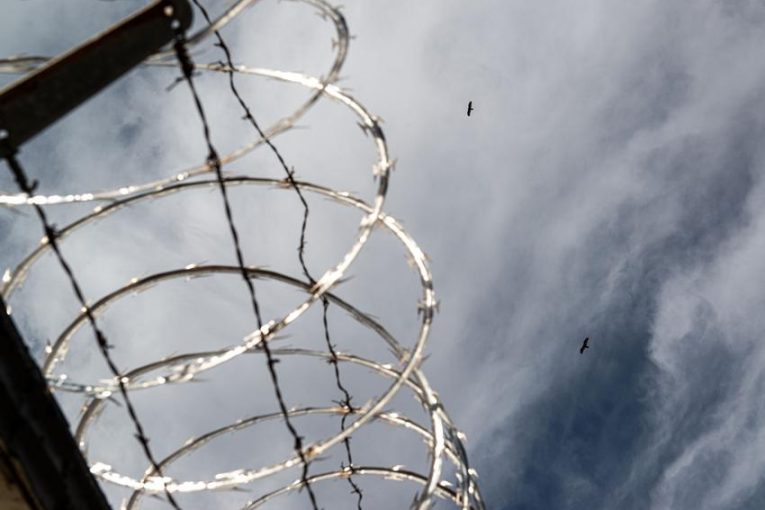
By Mengyu Yang
Due to the COVID-19 pandemic, many prisons across the country have implemented extended lockdowns wherein incarcerated people have little to no yard time and get less than one hour to shower or take a phone call. These solitary-confinement-style quarantines are causing severe physical and mental harm.
Martha Pulizzano’s husband, James Pulizzano has been under quarantine for over 2 months at California Medical Facility (CMF), a male-only state prison medical facility located in Vacaville, CA. As of Feb. 17, it has a population of 1953 people, with 713 total confirmed cases and 10 deaths. While the active cases in custody are below 10 at the moment, the facility experienced a massive outbreak during December.
The rate of confirmed cases per 1000 people at CMF is 365.1, while the rate at Solano country is 65.3 and is 88.3 in California.
Before being transferred to CMF, James served time at Mule Creek State Prison, CA Health Care Facility and RJ. Donovan Correctional Facility.
“CMF is by far the worst,” said Ms. Pulizzano as she had always been able to build a rapport with her husband’s medical practitioners at other CDCR institutions. However, his doctor at CMF, Dr. Michelle Chute, has been extremely unhelpful and demeaning. She added that staff at CMF demonstrated a constant attitude that all the incarcerated people are liars. Given that it is a medical facility, they anticipated that medical care and attention would be superior to that of other facilities, but it was far from the case.
James has a range of health issues and physical disabilities. His right leg was amputated above the knee. Martha explains that his prosthetic leg has been broken for a long time, but CDCR refused to fix it presumably because it is expensive and he can “technically” still walk on it. James uses his hip and left knee to carry the strain of moving his right leg around. It is painful for him to walk, and the lack of exercise has caused severe weight issues.
Generally, one uses gel prosthetic liners to attach a prosthetic to the stump. Despite several requests, Mr. Pulizzano did not receive gel liners from CDCR. He has to get by with sewing.
Along with other health issues such as high blood pressure, high cholesterol, and obesity, James has also had a right shoulder replacement and a left arm reconstruction. He suffers from severe asthma and reduced lung capacity due to a fissure in his right lung.
Though he was one of the first individuals at CMF to receive the vaccine due to his high-risk medical conditions, he did not receive a decision on his petition for early-release through CDCR’s COVID-related population reduction programs. Meanwhile the conditions inside CMF remain hostile to his mental and physical health.
Martha highlighted 5 main areas of concern for her husband and others with physical limitations or severe health issues.
- Conditions at CMF are inconducive for those with disabilities.
James’ cell is not wheelchair friendly. “If there is a fire or any other issue, he cannot get out because the wheelchair does not fit through the door,” she says. Since it’s a long process to put his prosthetic leg on, he has to use a urinal at night instead of going to the bathroom.
There have been other reports confirming the lack of care for the disabled population at CMF particularly during the pandemic. Typically, ADA workers help them with their daily tasks, even moving their wheelchair around. But with many ADA workers out sick with COVID-19, and unhelpful staff members, those with physical limitations are further incapacitated.
- They are receiving limited medical attention.
Ms. Pulizzano stated that her husband and others found an incarcerated person passed out on the bathroom floor. No one knew how long he had been there. “Why weren’t [staff] monitoring him?” she asks. “They should have found him passed out way before.” Since some COVID-19 symptoms could be life-threatening, she feels positive patients need to be monitored constantly but “CDCR nurses want to only do what is within the regulations, don’t want to do more.”
- Essential supplies are limited.
Hand sanitizers are available only when the senior administrators come by for spot checks. The facility reportedly limits sanitizers due to concerns that some may consume it for the alcohol content.
In her husband’s experience, CMF has a good supply of masks and cleaning supplies. He gets to deep-clean his cell once a week and is able to mask himself.
However, she says the food situation remains deplorable. “One meal was crackers, pretzels, and a block of cheese.” The kitchen is under-staffed because many workers are out sick with COVID-19.
- Those who exhibit symptoms but refuse to get tested are staying in the same building as the rest.
According to Ms. Pulizzano, there were some men in the same yard as her husband who refused to get tested, but exhibited symptoms consistent with COVID-19. They were “coughing so loudly that it kept other guys up at night.” She felt that CMF could have established a floor in the same building dedicated to those who refused testing but showed symptoms.
- Lockdowns are causing severe mental distress
CMF has halted in-person contact visits since March. According to Ms. Pulizzano, her husband gets one 15 minute call per day if lucky; sometimes he does not even get the entire 15 minutes. Further, video visits are limited and inconsistent. “I haven’t seen my husband since last February of last year. I have not laid my eyes on him for one year,” she says. In addition to the distress from being unable to see their loved ones, incarcerated people at CMF also experience mental health issues since they are essentially facing solitary confinement disguised as “quarantine.”
“They are aware of his medical issues, but refused to care when he needed treatment…Not everyone incarcerated is a bad person. Some just made a really bad mistake.” Ms. Pulizzano concluded about her husband’s experiences.